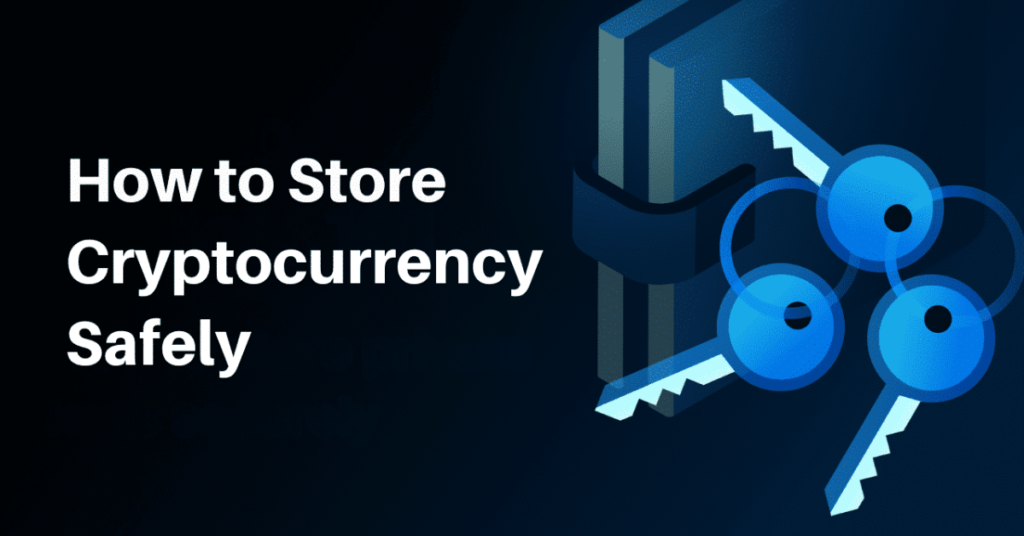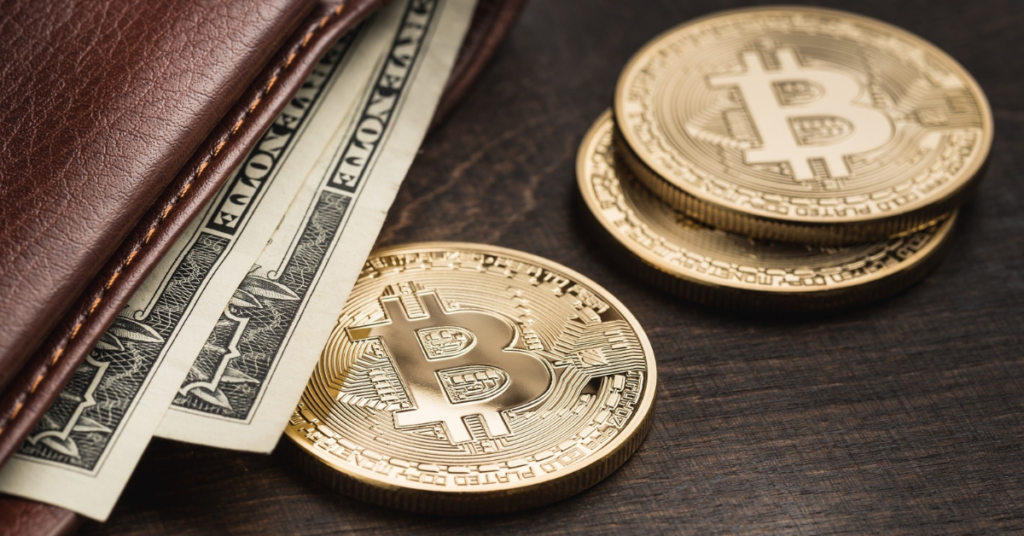In recent years, cryptocurrency has gained significant traction as a popular investment vehicle. With the rise of digital assets like Bitcoin, Ethereum, and countless others, more people are looking to buy cryptocurrencies. However, the growing popularity of these digital currencies has also led to a rise in scams, fraud, and security risks. If you are looking to invest in crypto, it’s crucial to understand how to buy cryptocurrency safely. This guide will walk you through the best practices to ensure your investments are protected from risks while maximizing potential returns.

1. Understand the Basics of Cryptocurrency
Before diving into the world of cryptocurrency, it’s important to grasp the fundamentals. Cryptocurrency is a form of digital or virtual currency that uses cryptography for security. It operates independently of a central bank and relies on blockchain technology to verify transactions. Popular cryptocurrencies include Bitcoin (BTC), Ethereum (ETH), and newer coins such as Solana (SOL) and Cardano (ADA).
Understanding how these digital currencies work will help you make informed decisions and avoid falling victim to common pitfalls. Research each cryptocurrency’s use case, technology, and market trends to better assess their potential for growth.
2. Choose a Reliable Exchange
One of the first steps in buying cryptocurrency is choosing a reputable exchange. Cryptocurrency exchanges are platforms where you can trade digital assets, and selecting a trustworthy one is critical for your safety. Here are a few things to consider when choosing an exchange:
- Regulation and Compliance: Look for exchanges that comply with the regulations of your country. This ensures that the platform adheres to financial laws and consumer protection standards.
- Security Features: Ensure the exchange implements robust security measures, including two-factor authentication (2FA), cold storage for cryptocurrencies, and encryption protocols to protect user data.
- Reputation: Research the exchange’s reputation by reading reviews, checking news reports, and asking other cryptocurrency investors. Popular exchanges like Coinbase, Binance, Kraken, and Gemini are well-known for their reliability, but always conduct your own research.
- Fees: Understand the fee structure on different exchanges. Transaction fees can vary widely, so it’s important to choose one that aligns with your investment strategy. Be mindful of both trading and withdrawal fees.
3. Set Up a Secure Wallet
After purchasing cryptocurrency, it’s vital to store it securely. While exchanges offer custodial wallets, these are not the safest option. A custodial wallet means the exchange holds your private keys, leaving your funds vulnerable to hacking or fraud. To mitigate this risk, you should consider transferring your cryptocurrency to a personal wallet.
There are two main types of wallets:
- Hot Wallets: These wallets are connected to the internet and are more convenient for frequent trading. However, they are more susceptible to cyber attacks. Popular hot wallets include software wallets like MetaMask and Trust Wallet.
- Cold Wallets: These are offline wallets and are the most secure option for long-term storage. Hardware wallets such as Ledger and Trezor are widely regarded as safe. They store your private keys offline, making them almost impossible to hack.
When setting up a wallet, ensure that you back up your private keys and recovery phrases securely. Never share these details with anyone. If you lose access to your wallet or forget your keys, you could lose access to your cryptocurrency permanently.
4. Implement Strong Security Practices
Security should always be a top priority when dealing with cryptocurrencies. Here are some key practices to protect your digital assets:
- Use Strong Passwords: When setting up accounts on exchanges or wallets, always use complex, unique passwords. Avoid reusing passwords across platforms. Consider using a password manager to keep track of your credentials securely.
- Enable Two-Factor Authentication (2FA): Enabling 2FA adds an extra layer of protection to your accounts. It requires you to verify your identity using a second factor, such as a code sent to your mobile device or generated by an authenticator app.
- Stay Aware of Phishing Scams: Phishing scams are common in the cryptocurrency space. Be cautious of emails, messages, or websites asking for your private keys, passwords, or other sensitive information. Always verify the source before clicking any links or downloading files.
- Avoid Public Wi-Fi: When accessing your cryptocurrency accounts or wallets, avoid using public Wi-Fi networks, as they may not be secure. Consider using a Virtual Private Network (VPN) for an added layer of protection.
5. Be Aware of Scams and Fraudulent Schemes
The cryptocurrency market is rife with scams, including Ponzi schemes, fake ICOs (Initial Coin Offerings), and phishing attempts. To avoid falling victim to fraud, keep these tips in mind:
- Research Before Investing: Never invest in a cryptocurrency or ICO without thoroughly researching it. Look for whitepapers, team backgrounds, and third-party reviews. If a project promises unrealistic returns, it is likely a scam.
- Avoid High-Pressure Sales: Be skeptical of any investment opportunities that pressure you to act quickly. Legitimate investments should never require immediate decisions without careful consideration.
- Stay Away from Unsolicited Offers: Be cautious of unsolicited messages or emails that promise huge profits in exchange for investing in a particular cryptocurrency. Scammers often use these tactics to lure unsuspecting victims.
6. Diversify Your Investments
Diversification is a key principle in any investment strategy, and it holds true in cryptocurrency as well. While Bitcoin and Ethereum remain the dominant players in the market, hundreds of altcoins are constantly emerging. By diversifying your crypto portfolio, you reduce the risk of losing everything if one asset performs poorly.
- Invest in Multiple Cryptocurrencies: Consider splitting your investments across various digital currencies. This not only reduces risk but also increases your exposure to potential winners in the crypto market.
- Consider Stablecoins: For those who want to reduce exposure to volatility, stablecoins like Tether (USDT) or USD Coin (USDC) can provide a safer alternative. These coins are pegged to fiat currencies like the US dollar, offering stability amidst market fluctuations.
- Long-Term vs. Short-Term Investments: Decide whether you want to hold your investments for the long term (HODL) or trade actively. Long-term investors might focus more on blue-chip cryptocurrencies, while short-term traders may look for opportunities in more volatile altcoins.
7. Stay Updated and Educated
The cryptocurrency market is constantly evolving, with new developments, regulations, and trends emerging frequently. To make informed decisions, it’s crucial to stay up-to-date with the latest news, industry insights, and regulatory changes.
- Follow Trusted Sources: Follow credible news outlets, influencers, and analysts in the cryptocurrency space. Websites like CoinDesk, CoinTelegraph, and The Block provide reliable updates and analysis.
- Join Cryptocurrency Communities: Participate in forums and communities, such as Reddit’s r/CryptoCurrency or the BitcoinTalk forum. These platforms can provide valuable insights and allow you to learn from other investors’ experiences.
- Understand Regulatory Changes: Cryptocurrency regulations vary from country to country and are constantly changing. Stay informed about local laws and regulations that might impact your ability to buy, sell, or hold cryptocurrencies.
8. Tax Implications and Reporting
Buying and selling cryptocurrency can have tax implications, depending on the jurisdiction in which you reside. Many countries treat cryptocurrency as taxable property, which means that gains or losses from trading crypto are subject to taxation.
- Keep Records: Maintain accurate records of your crypto transactions, including the dates, amounts, and prices at the time of purchase or sale. This will be essential for tax reporting.
- Consult a Tax Professional: If you’re unsure about how cryptocurrency taxation works in your country, it’s a good idea to consult a tax professional. They can help you understand your obligations and ensure you’re in compliance with the law.
Conclusion
Buying cryptocurrency safely requires a combination of knowledge, security practices, and vigilance. By understanding the basics of cryptocurrency, choosing reputable exchanges, securing your assets with personal wallets, and staying informed about market trends, you can mitigate risks and protect your investment.
Remember that the cryptocurrency market is volatile, and while it offers great potential for returns, it also carries significant risks. By following the steps outlined above, you can confidently navigate the world of crypto while safeguarding your investments from common threats.




